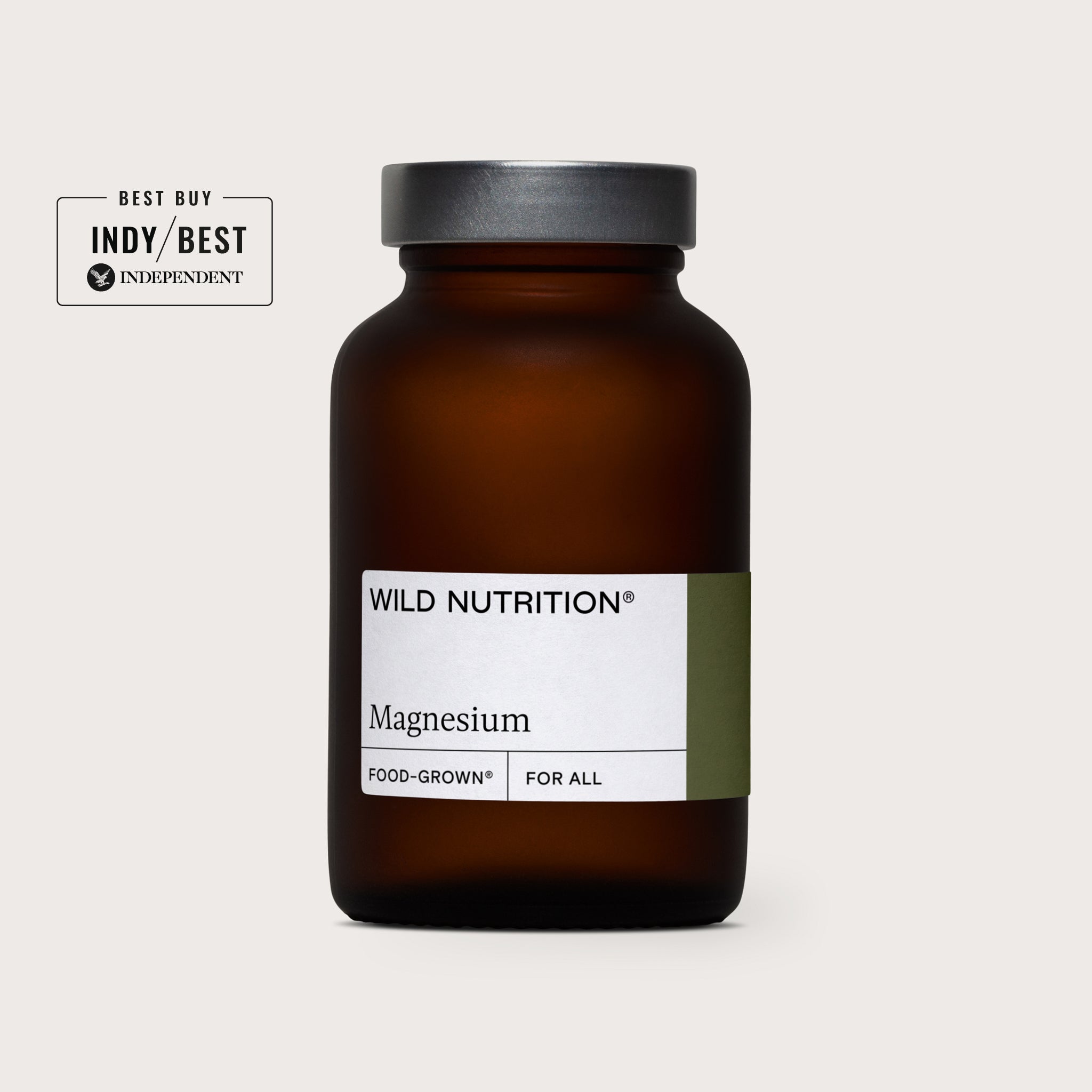
What makes Omega 3 essential?
BY SASHA PARKIN, Nutritional Therapist at Wild Nutrition.
Essential fatty acids are essential for longevity for a reason. Many reasons, in fact, as they're not only the building blocks for your hormonal health, they also play a vital role in regulating inflammation, energy production, healthy cholesterol, your immune system, cognitive health and beyond. Omega 3 is one of the most vital fatty acids for a life well-lived, but one that many of us are deficient in. Let's deep dive into why it's so crucial and how you can ensure you're getting enough.
Why is Omega 3 an essential?
Omega 3 consists of two core components: EPA and DHA. EPA and DHA together contribute to the normal function of the heart, while DHA is a structural component of the human brain, which is why Omega 3 plays such a key role in brain function, especially in young infants and children. This is also why it is so important that pregnant women maintain healthy levels.
Omega 3 fatty acids are also necessary for supporting preconception, especially for men, as DHA forms a considerable part of the head of the sperm and therefore influences sperm quality and mobility.
In addition to this, the essential fatty acid provides 'vehicles' to support the absorption and circulation of other fat-soluble nutrients such as Vitamins A, D, E and K, all of which become especially important during preconception, pregnancy and the early stages of childhood.
And the benefits don't end there. Research shows that Omega 3 also helps to protect us from conditions such as asthma and heart disease, and plays a role in autoimmune and degenerative conditions. It's vital for keeping your skin, eyes, joints, muscles and other tissues lubricated and key for menstrual health as it assists with the production of the right type of prostaglandins (immune compounds).
Why might your Omega 3 levels become low?
Problems maintaining good levels of Omega 3 in the body usually arise from the modern-day diet, and if you're not fond of consuming fish it can make it even more challenging to achieve the right balance. On top, present day agricultural practices also affect the amount of Omega 3 you'd usually benefit from in eggs, fish and meat. For example, hens reared indoors fed on grains have a lower Omega 3 content than hens reared outside that are fed on Omega 3-rich plants and grains.
It's also been found that most available vegetable oils are high in polyunsaturated fats, containing very little Omega 3 but large amounts of Omega 6 fatty acids. Recent research has discovered that an excess of Omega 6, which, unlike Omega 3, can be synthesised in the body, creates an imbalance that can interfere with the production of beneficial prostaglandins needed for a healthy immune system and female health.
Stress, alcohol consumption, smoking and excess saturated fat intake can all impact Omega 3 levels, however maintaining healthy levels are vital for keeping joints running smoothly for sports and fitness and during the below lifestages:
- During preconception for both men & women
- Throughout pregnancy, especially in the third trimester and when breastfeeding
- In the early stages of childhood development.
What can you eat to support Omega 3 levels?
The great news is there's an abundance of foods you can turn to to improve your Omega 3 intake, including:
- Oily fish (salmon, trout, sardines, mackerel)
- Nuts & seeds (chia seeds, flaxseeds, walnuts, hemp seeds)
- Vegetables (broccoli, spinach, cauliflower)
- Eggs from free-range chickens that consume Omega 3-rich foods (i.e. grass and other plants).
- Animal products e.g. beef from cows reared on a grass-fed diet.
Certain vitamins and minerals also play a role in the way essential fatty acids are used or are ‘available’ for use in the body, so it's important to seek out foods rich in Zinc and B vitamins, including:
- Eggs & dairy (milk & cheese)
- Nuts & seeds (pumpkin seeds, cashews, and flax seeds)
- Pulses (lentils & beans)
- Legumes & leafy greens.
Is it necessary to eat fish if you're supplementing with fish oils?
While supplements are never a replacement for food, and food should always be your first priority, for those who find it hard to eat fish, fish oil supplements can be the perfect solution to help bridge the gap. They may also be used as a ‘therapeutic’ top-up if a particular health situation requires. If you do not take fish oils for religious or ethical reasons, you can try an algae DHA alternative or flax/chia seed oil instead.
If you are taking fish oil supplements, it is still important to eat 2-3 portions of fish a week as the whole fish supplies essential protein, vitamins and minerals. Where possible, wild fish provide the best sources.
However, there are some restrictions on fish consumption during pregnancy and turning to a pure fish oil supplement (heavy metal- and contaminant-free) is key to supporting healthy levels. It's important to check that the particular fish oil you are using is safe in pregnancy, as some forms of fish oil, like cod liver oil, may not be advised, so always be sure to check with your midwife or GP.
As always, when it comes to achieving quality nutrition and optimal Omega 3 levels, a diverse diet is key. However, supplementing an Omega 3-rich diet is hugely beneficial. If you have any questions or you're still unsure, speak with our Nutritional Therapist team today. You may also be interested in our Omega 3-rich recipes. Why not try our mouthwatering mackerel, or nourishing on-the-go grain bowl.












